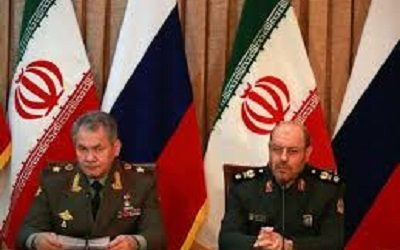EGYPT MILITARY FORCES ATTACK PEACEFULL DEMONSTRATIONS IN CAIRO
 Cairo, 8 Ramadan 1434 / 16 July 2013 (MINA) – The Egyptian military forces opened fire and threw tear gas toward the pro Mursi peaceful protesters at October 6th Bridge, Ramsis area, Cairo on Tuesday morning (16/7).
Cairo, 8 Ramadan 1434 / 16 July 2013 (MINA) – The Egyptian military forces opened fire and threw tear gas toward the pro Mursi peaceful protesters at October 6th Bridge, Ramsis area, Cairo on Tuesday morning (16/7).
“They attacked the demonstrans first when they were doing tarawih pray in the area,” said one contributor of SINAI who do not want to be named.
The forces were on the bridge. They shooted demonstrans from there and threw tear gas at them who are directly under the bridge, Center for Information Studies Alam Islami (SINAI) which is based in Cairo told MINA (Mi’raj News Agency)’s reporter.
Until this news is published, there was one person died and about 200 others were injured.
The armed forces also arrested demonstrators’s coordinators in the area.
Meanwhile, the ‘pro-coup’ media, Al Masyri Al yaum reported that police attacked the demonstrators after Mursi’s supporters were in clash with local residents in the Ramsis area, but this statement is contradicted by SINAI news which said there was no clashes between the peaceful protesters and local residents.
Egypt Coup
On 3 July 2013, General Abdul Fatah al-Sisi removed President Mohamed Morsi and suspended the Egyptian constitution after ongoing public protests. The move came after large-scale ongoing public protests in Egypt for and against Morsi, and a warning from the army to respond to the demands of the protesters or it would impose its own roadmap.
Al-Sisi declared Adly Mansour as the interim president of Egypt. Morsi was put under house arrest and Muslim Brotherhood leaders were arrested. The announcement was followed by demonstrations and clashes between supporters and opponents of the coup throughout Egypt.
The protests against Morsi on 30 June marked the one-year anniversary of Morsi’s inauguration as president. Millions of protesters across Egypt took to the streets and demanded the immediate resignation of the president.
Reasons for demanding Morsi’s resignation include accusations that he was increasingly authoritarian and pushing through an Islamist agenda without regard to secular opponents. The demonstrations, which had been largely peaceful, turned violent when five anti-Morsi protesters were killed in separate clashes and shootings. At the same time, supporters of Morsi staged a rally in Nasr City, a district of Cairo.
The situation escalated to a full-blown national political and constitutional crisis, with Morsi refusing the military’s demands for him to leave power and the army threatening to take over if the civilian politicians did not resolve the situation. Morsi gave a defiant speech in which he reiterated his “legitimacy” as a democratically elected president and criticised the military for taking sides in the crisis.
On 3 July, the Egyptian military announced the end of Mohammed Morsi’s presidency, the suspension of the constitution, and that a new presidential election will be held soon. The military appointed Chief Justice Adly Mansour as the interim president, and charged him with forming a transitional technocratic government. Morsi was put under house arrest and Muslim Brotherhood leaders were arrested.
The announcement was followed by demonstrations and clashes between supporters and opponents of the coup throughout Egypt. The announcement was followed by a statement made by the Grand Sheikh of Al Azhar Ahmed el-Tayeb, the Coptic Pope Tawadros II as well as opposition leader Mohamed ElBaradei.
There were mixed international reactions to the events. Most of the Arab world was generally supportive or neutral, with the notable exception of the founding state of the Arab Spring, Tunisia. Other states either condemned or expressed concern over the coup; there was also a perceived measured response from the United States.
Due to the regulations of the African Union regarding the interruption of constitutional rule by a member state, Egypt was suspended. There has also been debate in the media regarding the labeling of these events. It has been variously described as a coup d’état or as a revolution. (T/P03/P04?E1)
Mi’raj News Agency (MINA)




